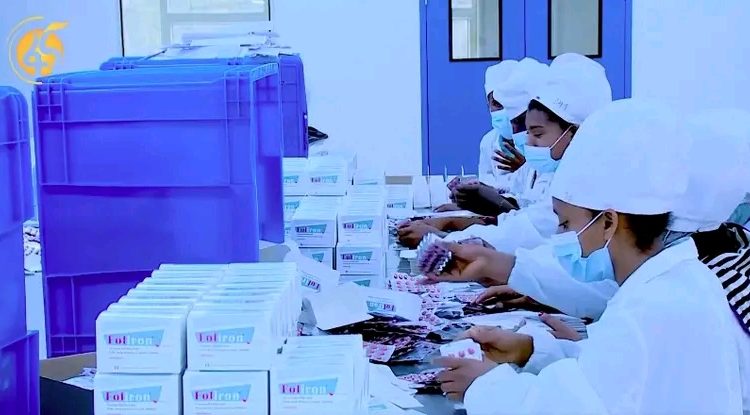Ethiopia’s Qilinto SEZ Pioneers Production of Critical Medicines Unavailable Across Africa
Addis Ababa, November 6, 2025 (FMC) – Ethiopia has created the capacity to produce critical medicines not previously manufactured anywhere in Africa, positioning the country to meet domestic demand and supply the wider African pharmaceutical market, the Qilinto Special Economic Zone announced.

This initiative is part of Ethiopia’s broader strategy to strengthen local pharmaceutical production. Local companies have been authorized to operate within the Qilinto Special Economic Zone, where facilities now produce medicines, diagnostic tools, medical equipment, and pharmaceutical packaging for market distribution.
Dr. Tadesse Teferi, President of the Ethiopian Pharmaceuticals & Medical Supplies Manufacturing Association (EPMSMA), told Fana Media Corporation that several factories are already operational, while others have completed construction and are preparing to begin production. Additional pharmaceutical plants are under development, he added.
“Various medicines and medical equipment are now produced locally and serve domestic needs,” Dr. Tadesse said. “Government policy incentives have been crucial in fostering sector growth, offering opportunities not available in many other countries.”
He highlighted that creating strong market linkages is expected to further encourage investment in the pharmaceutical sector.
Mr. Misker Mamo, Deputy Manager of the Qilinto Special Economic Zone, noted that the zone hosts 28 manufacturers, with five currently in production. He explained that production is aligned with Ethiopia’s consumption needs and national demand for medicines.
Mr. Mamo emphasized that the zone now has the capacity to manufacture medicines previously unavailable across the continent, enabling Ethiopia to supply the African market while reducing foreign currency expenditure on imported medicines by 60 to 80 percent.
He also noted that the Ethiopian Pharmaceuticals Supply Service now sources 65 percent of its medicines from domestic manufacturers, reflecting a significant step toward local self-sufficiency.

